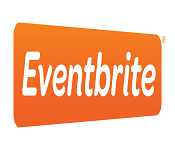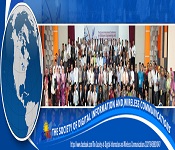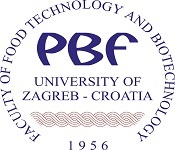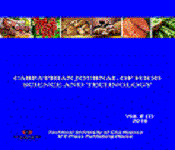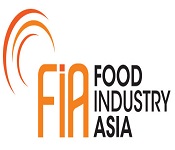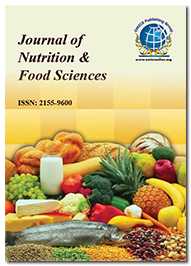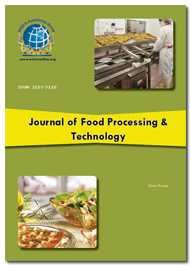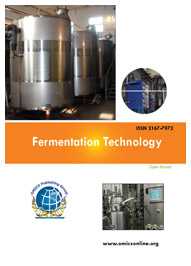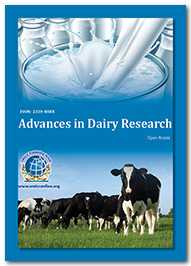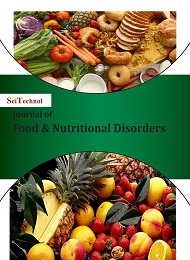Theme: Innovation and Excellence-The New Agenda of Innovation and Achievement in Food Engineering
Food Engineering 2016
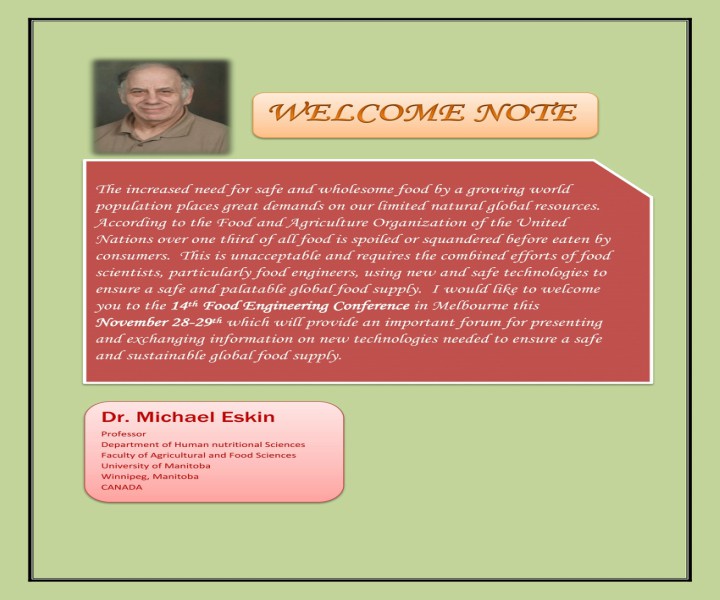
ConferenceSeries Ltd going to organizing 14th International Conference on Food Engineering during November 28-30, 2016 Melbourne; Australia.
Track-1: Food Engineering Advances
Food Engineering conference is a multi-facet area of applied physics which combines science, microbiology, and engineering knowledge for food and related industries. It also supported by the principles of agricultural engineering, mechanical engineering and chemical engineering. Apart from these, Physics, chemistry, and mathematics are the three pillars to understanding food products and operations in the food technology industry. Food engineers make available the technological information essential for the production and commercialization of food products and services in a cost effective manner. Food engineers are involved in a wide range of activities, starting from food ingredient processing, instrumentation technology, packaging, manufacturing, to the food quality control process. The track included food engineering innovations, genetic modification, Food rheology, sustainable technologies and extrusion technology are going to be discussed in Food Engineering Conference.
Related: Food Conferences | Food Engineering Conferences | Food and Beverage Conferences | Australia Food Conferences | ConferenceSeries Ltd
14th International Conference on Food Engineering, 28-30 November, Melbourne, Australia, 18th International Conference on Global Food Security, January 7-8, 2016 Singapore; International Conference on Food Studies - A Common Ground Conference, October 12-13, 2016 Berkeley, CA; XV International Conference on Food Science and Biotechnology October 4-5, 2017 Lisbon, Portugal; 2nd International Conference on Food safety and Regulatory Measures ‘ June 06-08, 2016 at London, UK;
Related societies
Academy of Nutrition and Dietetics, USA; Australian Institute of Food Science and Technology, Australia; European Federation of Food Science and Technology, Netherlands; German Institute of Food Technologies, Germany; Institute of Food Technologists, USA; Odessa National Academy of Food Technologies ,Ukraine; International Association of Engineering and Food, USA.
Track-2: Food Processing Technology
Food Processing Technology is the conversion of raw ingredients, by physical or chemical means into edible food, Food processing combines raw food ingredients to produce marketable food products that can be easily prepared and served by the consumer. Food processing typically involves activities such as mincing and macerating, liquefaction, emulsification, and cooking (such as boiling, broiling, frying, or grilling); pickling, pasteurization, and many other kinds of preservation; and canning or other packaging. (Primary-processing such as dicing or slicing, freezing or drying when leading to secondary products is also included). Food processing dates back to the prehistoric ages when crude processing incorporated fermenting, sun drying, preserving with salt, and various types of cooking (such as roasting, smoking, steaming, and oven baking), Such basic food processing involved chemical enzymatic changes to the basic structure of food in its natural form, as well served to build a barrier against surface microbial activity that caused rapid decay. The track includes modern day food processing technologies like Pulsed Electric Fields for Food Processing, Ultrasonic in Food Processing, High Pressure Processing of Foods, Ohmic Heating and Extrusion Cooking Technology,
Related: Food Conferences | Food Engineering Conferences | Food and Beverage Conferences | Australia Food Conferences | ConferenceSeries Ltd
14th International conference on Food Engineering, 28-30 November, Melbourne, Australia, International Conference on Nutrition and Food Sciences October 26-28, 2015 Chicago Illinois; 13th Global Food Manufacturing Conference October 20-22, 2016 Kuala Lumpur, Malaysia; Nutrition Conferences, Europe June 16-18, 2016 Holiday inn Rome- Aurelia, Rome; International Conference on Food Hygiene Regulations, May 19-21, 2016 Osaka, Japan; 11th Global Summit and Expo on Food & Beverages September USA; 4th International Conference on Food Oral Processing, July 3–6 2016 Lausanne, Switzerland; 3rd Global Food Safety Conference September 01- 03, 2016 Atlanta, USA; International Conference on Food and Packing June 13-15, 2016 Rome, Italy
Related Societies:
Association of Food industries , USA; American association for meat processing, USA; Brazil Association for Food Protection, American Frozen food institute, Brazil; International Food manufacturing association, ABIA – Brazilian Association of Food Industries, Brazil; American cheese society, USA.
Track-3: Food Fortification and Biotechnology
The dietary habit of a living being is what it eats. This is mostly determined by its availability, its processibility and its palatability of foods items. A healthy diet includes the mode of preparation of food and its storage methods that conserve nutrients from oxidation, heat or leaching, and that reduce risk of food-born-diseases. The science behind the interaction of components and other substances in food in relation to growth, maintenance, health, reproduction and illness of an organism is called nutrition. It includes intake of food absorption, assimilation, biosynthesis, catabolism, bodybuilding nutrients and excretion. Research behind this science has largely contributed in finding out the vital facts about how environmental exhaustion can lead to crucial nutrition-related health problems like contamination, spread of contagious diseases and malnutrition and going to be discussed in Food Engineering conference.
Related: Food Conferences | Food Engineering Conferences | Food and Beverage Conferences | Australia Food Conferences | ConferenceSeries Ltd
14th International conference on Food Engineering, 28-30 November, Melbourne, Australia,3rd International Conference on Bio Tribology - ICoBT 2016, 11 - 14 September 2016,London, UK;13th Global Food Manufacturing Conference, October 20-22, 2016 Kuala Lumpur, Malaysia;12th International Conference on Food Processing and food technology, October 24-26, 2016 Istanbul, Turkey, 18th International Conference on Global Food Security, January 7-8, 2016 Singapore.
Related Societies:
Institute for Food Safety and Health, USA; Food Products Association, USA.
Track-4: Food Biochemistry
Several numbers of food items whether in raw form or in processed form comprises food ingredient and their interplay make whole food items. The study of chemical processes and interactions of all organic and inorganic components of foods is called Food chemistry. The organic or more appropriately the biological substances consist of such items as poultry, meat, milk, lettuce and beer as examples. It is related to biochemistry in its main components such as carbs, fats, and proteins, but it also includes areas such as water, micro nutrients, enzymes, food additives, flavors, and colors. This discipline also covers how products transform under certain food processing method and technique either to enhance or to prevent them from happening. A best case in point of enhancing a process would be to encourage fermentation of dairy products with microbes that convert lactose to lactic acid. A preventive example is to stopping the surface browning of freshly cut apples or potatoes using lemon juice or other acidulated water. The track includes amino acids, proteins, vitamins, Minerals, flavor science and artificial sweeteners, enzymology, aromatic foods and their characterization, Chemistry of baked food
Related: Food Conferences | Food Engineering Conferences | Food and Beverage Conferences | Australia Food Conferences | ConferenceSeries Ltd
14th Food Engineering Conference, November 28-30, 2016 Melbourne, Australia,The 13th International Hydrocolloids Conference, May 16-20, 2016,Guelph, Ontario, Canada;The 2nd International Conference on Natural Food Hydrocolloids, September 14th – 15th ,2016 , Mashhad-Iran;3rd International Conference on Bio Tribology - ICoBT 2016, 11 - 14 September 2016,London, UK;13th Global Food Manufacturing Conference, October 20-22, 2016 Kuala Lumpur, Malaysia;12th International Conference on Food Processing and Technology , October 24-26, 2016 Istanbul, Turkey;
Related Societies:
National Association of Flavors and Food-Ingredient Systems ,USA; Brazil Association for Food Protection, American Frozen food institute, Brazil; International Food manufacturing association, USA; ABIA – Brazilian Association of Food Industries, ABIFRA – Brazilian Essential Oils, Aromatic Chemical Products, Fragrances, and Aromas Industries Association, USA; American Oil Chemists' Society, USA
Track-5: Food Microbiology
Food microbiology comprises the study of the microorganisms those dwell in food items, help in to create or transform certain food and spoil or contaminate food. Among all of these the term good bacteria, such as probiotics, are becoming increasingly gaining importance in food science. In addition to this , microorganisms are pivotal for the diary, backer and brewery industry producing cheese, yogurt, bread, beer, wine and as well as other fermented foods. Food Microbiology as a subject emphasizes on a wide range of science on microbes that have both beneficial and deleterious effects on the safety and quality of foods, thus by a concern for public health. The track includes beneficial microbes, genetically modified microorganisms, Inoculation science.
Related: Food Conferences | Food Engineering Conferences | Food and Beverage Conferences | Australia Food Conferences | ConferenceSeries Ltd
14th International conference on Food Engineering, 28-30 November, Melbourne, Australia, International Conference on Food Microbiology August 08-10, 2016 Birmingham, UK, 2nd World Congress on Beneficial Microbes: Food, Pharma, Aqua & Beverages Industry September 23-25, 2016 Phoenix, USA; XXX Latin America Congress of Food Microbiology and Hygiene, COLMIC 2016, September 27-30, 2016 Medellin, Colombia; 14th Food Engineering Conference, November 28-30, 2016 Melbourne, Australia, FoodMicro 2016 July 19-22, 2016 Dublin, Ireland; 5th European Nutrition and Dietetics Conference June 16-18, 2016 Rome, Italy
Related Societies
International Life Sciences Institute, Europe; International Association for Food Protection, USA
Track-6: Fermentation, Bioprocess and Dairy Science
The term "fermentation" is sometimes used to specifically refer to the chemical conversion of sugars into ethanol, a process which is used to produce beverages. Fermentation in food processing is the conversion of carbohydrates to alcohols and carbon-dioxide or organic acids using yeasts, bacteria, or a combination thereof, under anaerobic conditions. The track includes type of bioreactor, Production of biomass, biochemical process of fermentation, downstream processing, recovery of the product, byproducts of fermentation.
Related: Food Conferences | Food Engineering Conferences | Food and Beverage Conferences | Australia Food Conferences | ConferenceSeries Ltd
14th Food Engineering Conference, November 28-30, 2016 Melbourne, Australia; International Conference on Food Microbiology , August 08-10, 2016 Birmingham, UK; 18th International Conference on Bioprocess and Fermentation Technology December 19 - 20, 2016, Istanbul, Turkey; 2nd Beneficial Microbes Congress September 23-25, 2016 Phoenix, USA; 9th Food and Beverages Summit July 11-13, 2016 Cologne, Germany.
Related Societies:
Applied Food Technologies, USA; Chinese American Food Society, USA; American Meat Science Association, USA; Dairy Industry Association of Australia, Australia.
Track-7: Food Packaging
Food Packaging has developed strongly recent years, mainly due to increased demand on product safety, shelf-life extension, cost efficiency, environmental issues and customer convenience. In order to improve the performance of packaging in meeting these varied demands, innovative modified and controlled-atmosphere packaging, and active and intelligent packaging systems are being developed. Other elements of increasing importance in food packaging include traceability, tamper indication, and sustainability. Consumers demand products with fewer synthetic food additives but increased safety and shelf-life. These demands have increased the importance of natural antimicrobials which prevent the growth of pathogenic and food spoilage micro-organisms. The emergence of ‘minimal’ processing techniques, which have limited impact on a food’s nutritional and sensory properties, has been a major new development in the food industry. Types and roles of Active and Intelligent packaging. The track includes radio Frequency Identification (RFID), non-migratory bioactive polymers (NMBP), oxygen, ethylene and other scavengers, time-temperature indicators (TTIs), the use of freshness indicators in packaging, packaging-flavor interactions, moisture regulation, developments in modified atmospheric packaging, Barcodes.
Related: Food Conferences | Food Engineering Conferences | Food and Beverage Conferences | Australia Food Conferences | ConferenceSeries Ltd
International Conference on Food Preservation & Packaging March 31-April 01, 2016 Atlanta, GA, USA; 3rd Global Food Safety Conference September 01- 03, 2016 Atlanta, USA; 14th Food Engineering Conference Nov 28-30, 2016 Melbourne, Australia; 9th Euro-Global Summit & Expo on Food & Beverages July 11-13, 2016 Cologne, Germany; 12th International Conference on Food Processing & Technology October 24-26, 2016 Istanbul, Turkey; Food Pack Asia 2016 March 3, 2016 Thailand, Bangkok; The Packaging Conference February 8-10, 2016 NV, USA; Global Food and Beverage Packaging Summit 2016 July 12-13, 2016 IL, USA; American Food Technology and Innovation Summit June 8-10, 2016 Chicago, USA; International Packaging Exhibition Emballage November 14-17, 2016 Paris, France; Nutrition Conferences Europe June 16-18, 2016 Holiday inn Rome- Aurelia, Rome.
Related Societies:
Applied Food Technologies, USA; PMMI: The Association for Packaging and Processing Technologies, USA; American National Standards Institute, USA
Conferenecseries LLC invites all the participants from all over the world to attend ‘14th International Conference on Food Engineering ‘during November 28-29, 2016 at Melbourn, Australia which includes prompt keynote presentations, Oral talks, Poster presentations and Exhibitions. The previous Food technology conferences were held at Kansas city-USA 2013, Vegas-USA 2014, and London-UK 2015 and had achieved a grand success. Now it is the time for the prestigious 14th Food Engineering Conference to address latest innovations, industrial & modern technologies in food engineering, food safety management, and challenges in the field of food engineering. Food Engineering2016 is the premier event that brings together a unique international mixture of experts, researchers and decision makers both from academia and industry across the globe to exchange their knowledge, experience and research innovations to build a better world of Food Scientists & Technologist meet.
Food engineering is an emerging and multidisciplinary field of applied sciences including physical sciences , Microbiology, Agriculture, and Pharmacy principles to food materials. Food Engineering provides us knowledge regarding innovation, economic production and industrialization of food materials. This century we are dedicating to food science which will provide food safety security through engineering and innovation with a promise “Food for all”.
Conferenceseries organizes a conference series of 1000+ Global Events inclusive of 300+ Conferences, 500+ Upcoming and Previous Symposiums and Workshops in USA, Europe & Asia with support from 1000 more scientific societies and publishes 700+ Open access journals which contains over 30000 eminent personalities, reputed scientists as editorial board members.
How we are different????
Australia is land of abundance of food with large costal lines, agricultural fields, developed industries and potentials researches with well-equipped laboratories. Melbourne is the capital of Victoria and is Australia's second largest city. Along with the many quality universities which are easy in reach by public transport. Melbourne is a famous research hub among the researchers worldwide. In Melbourne you will also find a city of style, fashion, food, architecture, theatres, galleries, trams and gardens. From the cafes and riverside Southgate to the designer fashion stores of South Yarra, Melbourne is a city of style and sophistication. Marvel at its fantastic architecture, excellent hotels, outstanding galleries and theatres. Enjoy fine cuisine and superb local wine in award winning restaurants. The city is home to more than 3000 restaurants serving over 70 national cuisines.
Food engineering educates about the many challenges is to employ modern tools, technology, and knowledge, such as computational materials science and nanotechnology, to develop new products and processes. Simultaneously, improving quality, safety, and security remain critical issues in food engineering study. New packaging materials and techniques are being developed to provide more protection to foods, and novel preservation technology is emerging. Additionally, process control and automation regularly appear among the top priorities identified in food engineering
With the presence of highly affiliated personalities, researchers, scientists around the globe focused on food production, this conference is providing the platform for learning and sharing the new developments in this field from technology “Gurus”. This is the place to meet the current and potential speakers and receive the name recognition.
14th Food Engineering Conference welcoming guests including Presidents,Vicepresidents/Directors, Academicians,Researchers, Scientists, Business delegates, Experts, Departmental managers, Professors and students from Academia.
Australia’s economic growth has outperformed its peers for the past two decades. According to IMF forecasts released in October 2015, Australia is expected to realize average annual real GDP growth of 2.9 % between 2016 and 2020 – the highest among major advanced economies and up from an average growth rate of 2.7 per cent between 2011 and 2015.
The Australian Government’s National Food Plan specifically identifies the benefits of empowering food regions and the importance of developing regional food plans. Its aim is to increase the value of food related exports from Australia by 45% and to increase food productivity by 30% by 2025. Melbourne’s North leads the state in production of food categories such as Bakery, Confectionery, Dairy, Seafood and Meat. It is home to an eclectic mix of artisan businesses including boutique microâ€breweries, premium chocolate makers, coffee roasters and gourmet food distribution companies as well as multinational food and beverage manufacturers such as Mission Foods, Baxters and Nestlé. The ethnic diversity of food produced is reflective of the region’s multicultural heritage and part of its identity. Melbourne’s North comprises seven LGAs: Banyule, Darebin, Hume, Moreland, Nillumbik, Whittlesea and Yarra. The region has approximately 400 food and beverage businesses with a turnover in excess of $1 million that generates a gross regional product (GRP) of $2.6 billion per annum and a business value added (BVA) measure of $841 million per annum (see NIEIR report in the Appendix). It is estimated that these businesses employ 10,559 workers. Melbourne’s North generates 13% of Victoria's gross domestic product (GDP) and 13% of its BVA
Conference Highlights
- Food Engineering - Advances
- Food Processing
- Fermentation and Bioprocess technology
- Food Packaging
- Biochemical Aspects
- Thermal Processing
- Extrusion Technology
- Liquid Concentration
- Sustainable Technologies
- Sanitation Technologies
- Future of food engineering
- Food Fortification
- Food Microbiology
- Food Safety
- Food Biochemistry
- Food Biotechnology
- Food Industry and Investments
- Food Quality
- Post-Harvest Technology and Processing
- Agricultural Engineering and Innovations
- Dairy Science and Technology
- Food Toxicology
To share your views and research, please click here to register for the Conference.
To Collaborate Scientific Professionals around the World
| Conference Date | November 28-29, 2016 | ||
| Sponsors & Exhibitors |
|
||
| Speaker Opportunity Closed | Day 1 | Day 2 | Day 3 |
| Poster Opportunity Closed | Click Here to View | ||
Useful Links
Special Issues
All accepted abstracts will be published in respective Our International Journals.
Abstracts will be provided with Digital Object Identifier by












